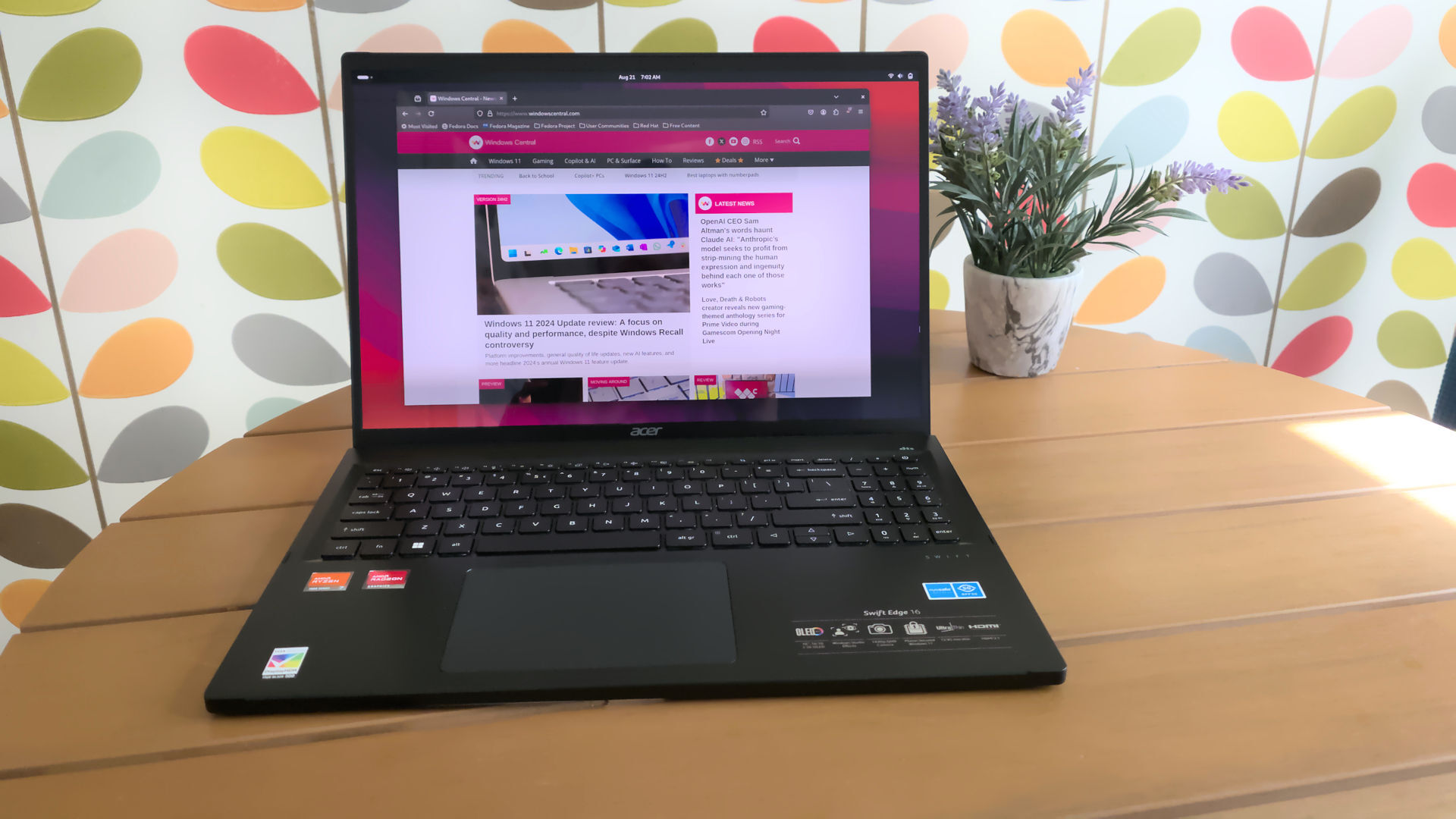With Windows 10’s fast-approaching demise, this Linux migration tool could let you ditch Microsoft’s ecosystem with your data and apps intact — but it's limited to one distro
Operese is a Windows-to-Linux migration tool designed to make the transition seamless, but it is still in its early development phase.

All the latest news, reviews, and guides for Windows and Xbox diehards.
You are now subscribed
Your newsletter sign-up was successful
Microsoft's dreaded Windows 10 end-of-life date is fast approaching. October 14, 2025, is just over two months away. Upgrading to Windows 11 is arguably the most conventional option, but the operating system's stringent minimum system requirements and seemingly flawed design elements make the transition less attractive.
Of course, you can opt to continue using Windows 10 by either enrolling in Microsoft's Extended Security Updates (ESU) program for $30/device, which will warrant you an extra year of support. Alternatively, you can opt to sync your PC settings data with the cloud via a Microsoft Account to continue receiving security updates from Microsoft for an extra year for free.
Either way, a huge chunk of currently active Windows computers are reportedly still running Windows 10, which could potentially lead to the single biggest jump in junked computers ever. While users could subscribe to Microsoft's conditional options to continue receiving Windows 10 security updates beyond the cutoff date, they'll only be viable for an extra year after the cutoff date. This means Windows 10 users will still wind up in this tricky position eventually.
I've been combing through social media posts, specifically on the topic of Windows 10's end-of-life status across X (formerly Twitter) and Reddit, and it seems like a significant number of people are considering ditching Windows entirely for Linux.
Our Managing Editor, Richard Devine, wrote an insightful feature about why he wouldn't necessarily advise Windows 10 users to jump ship to Linux beyond the operating system's cutoff date, listing its incompatibility with legacy software as a major deterrent. He also indicated how difficult it can be for newcomers to narrow down the specific Linux distro to use for specific wants and needs.
Be it as it may, if you decide to rip the band-aid off and switch to Linux, the process could be a tad simpler and seamless thanks to a new tool called Operese (via Neowin). For context, the app is a Windows-to-Linux migration tool that lets users make the transition to the free and open-source operating system with all their files, settings, and installed apps.
While the project shows great promise for Windows 10 users, it's worth noting that it is still in the early development phase, which limits its functionality to a demo and not actual execution. Additionally, you can only use the tool to switch to Kubuntu, while there are plenty more Linux distros to choose from.
All the latest news, reviews, and guides for Windows and Xbox diehards.
Ditching Windows is increasingly enticing
Earlier this month, I reported on The Restart Project's "End of 10" toolkit, designed to support Windows 10 users who can't upgrade to Windows 11. The group claims communities are mobilizing to repair and "breathe new life into computers."
It's in place to help install free and open-source operating systems like Linux distros on older devices that are still in use or those discarded by people and companies who've already upgraded to Windows 11 following Microsoft's decision. These efforts are part of the group's broader efforts to curb "an enormous increase in electronic waste."
Elsewhere, a group called 'End of 10' has been advocating for users to ditch Windows 10 for Linux as the operating system's end-of-support date edges closer. It cites a lack of ads and telemetry tracking as the main selling points for its agenda.
It'll be interesting to see how Microsoft's decision to cut support for Windows 10 will affect its dominance in the market share (if at all), and whether users will ditch the ecosystem for a free and open-source operating system like a Linux distro despite software compatibility challenges.
Are you still running Windows 10 on your device? What's your plan beyond Microsoft's free security updates? Will you be switching to Linux? Share your thoughts with me in the comments.

Kevin Okemwa is a seasoned tech journalist based in Nairobi, Kenya with lots of experience covering the latest trends and developments in the industry at Windows Central. With a passion for innovation and a keen eye for detail, he has written for leading publications such as OnMSFT, MakeUseOf, and Windows Report, providing insightful analysis and breaking news on everything revolving around the Microsoft ecosystem. While AFK and not busy following the ever-emerging trends in tech, you can find him exploring the world or listening to music.
You must confirm your public display name before commenting
Please logout and then login again, you will then be prompted to enter your display name.

